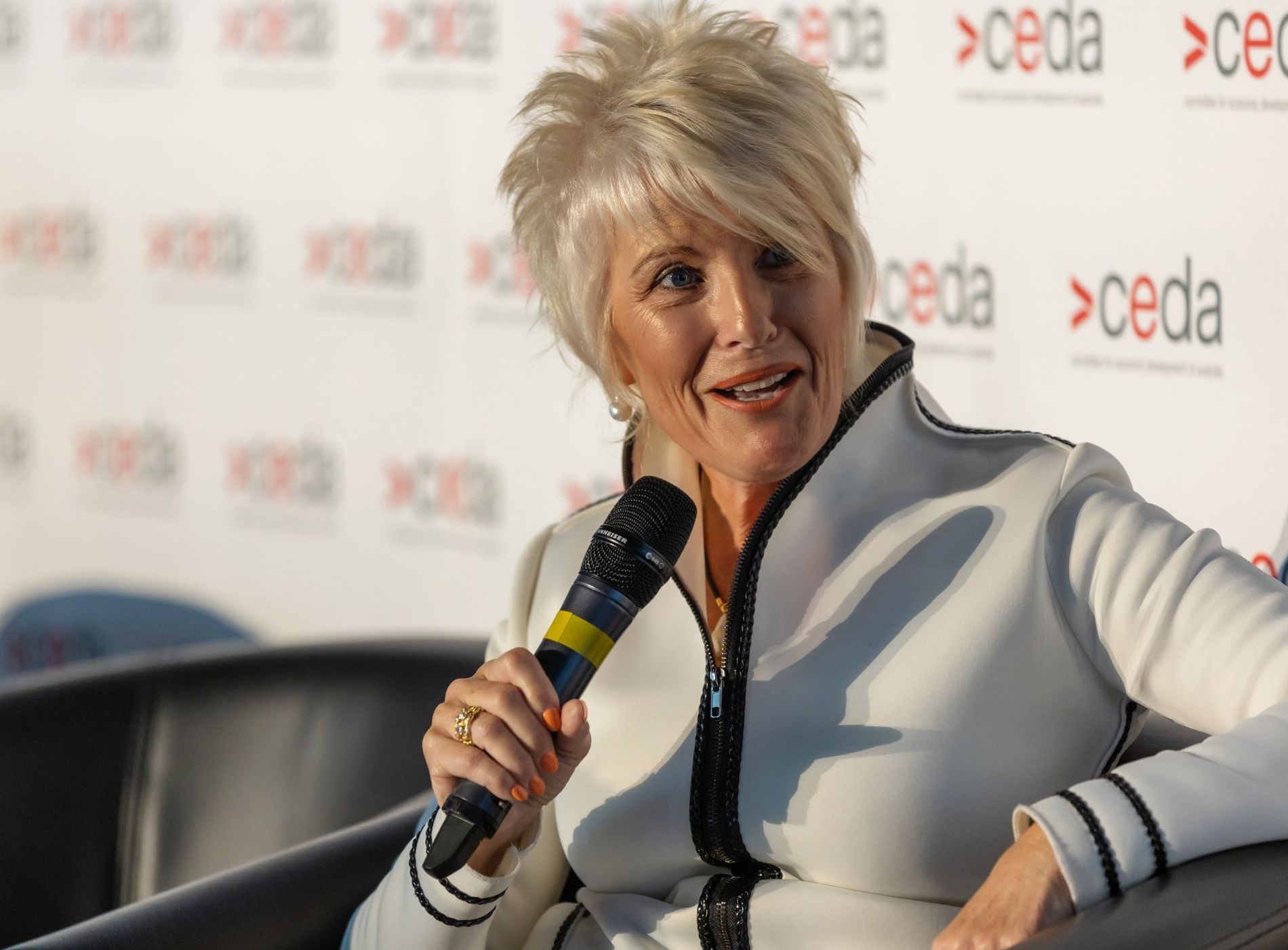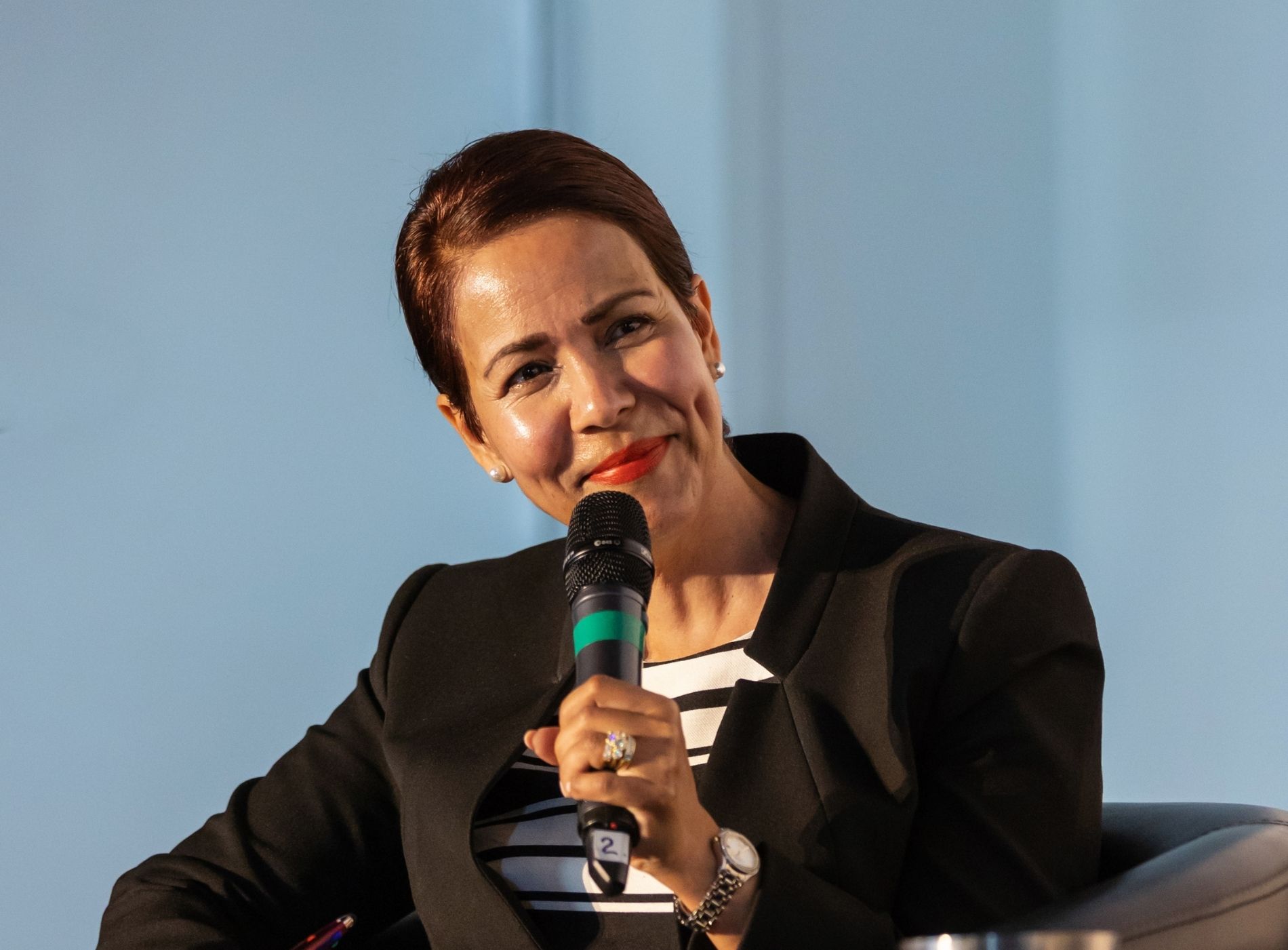PROGRESS 2050: Toward a prosperous future for all Australians
06/09/2021
Attracting new workers into the aged-care system is a priority for the sector, says Aged Care Workforce Industry Council Chair, Libby Lyons.
“There were 22,000 vacant direct care roles in aged care last year… and I fear that is going to go up, not down, unless we address the issues,” Ms Lyons told a CEDA audience in Perth.
The shortage of workers comes as new CEDA research shows that the sector will need thousands of additional workers annually just to keep up with demand.
Australia’s aged-care workforce will need to grow by nearly 17,000 workers a year over the next decade to meet basic standards of care, according to CEDA’s latest report, Duty of care: Meeting the aged-care workforce challenge.
.jpg) Aged Care Workforce Industry Council Chair, Libby Lyons.
Aged Care Workforce Industry Council Chair, Libby Lyons.To address the shortage, Ms Lyons said the council was designing the future job architecture of the aged-care sector, mapping out what jobs would look like in the future.
“We recognise that there are evolving and changing models of care as we move forward, and we need to be able to design a workforce that is fit to meet those evolving models,” Ms Lyons said.
Ms Lyons said the council was also working with the Human Services Skills Organisation to translate the architecture into career pathways to address the lack of career pathways in the sector.
In addition, Ms Lyons said they were working with industrial relations experts to develop IR frameworks, and financial specialists to identify the likely costs of future workforces.
“It’s a complex system and it requires a comprehensive and holistic approach to tackling these known problems,” Ms Lyons said.
Ms Lyons was joined by Deloitte Aged Care Lead Partner, Adj Prof Anita Ghose; Amana Living Chief Executive Officer, Stephanie Buckland; and CEDA Senior Economist, Cassandra Winzar for a discussion on how to solve Australia’s aged-care workforce challenges.
Technology shaking up Australia’s aged-care system
Ms Ghose said technology and innovation were gamechangers for Australia’s aged-care sector.
“What we see around technology and innovation is the ability give our workforce greater time to care on the front line and to do that in a way that is enabling rather than dictating,” Ms Ghose said.
“Some of the examples have come out of COVID-19, where we’ve worked with frontline staff on point-of-care solutions to help them around some of the care decision-making in terms of how labour could be allocated, the way that personal protection equipment supply chains could be better addressed and also in terms of the way that they’re able to share information quickly through data and insights that are quite real time.”
.jpg) Deloitte Aged Care Lead Partner, Adj Prof Anita Ghose.
Deloitte Aged Care Lead Partner, Adj Prof Anita Ghose.Ms Ghose said technology was also improving the productivity of the workforce and minimising disruptions faced by workers more broadly.
“In our homecare space, we see a significant change of the aged-care profile and workforce into home care,” Ms Ghose said.
“Service delivery optimisation has been critical with mobile workforces.”
Ms Ghose said Deloitte had been working with clients to provide real-time modelling and support around data and analytics to help deploy workforces at the right time in the right way.
“It’s been a significant cost saver and gamechanger,” Ms Ghose said.
“Giving back time has been critical, as well as providing real-time information and providing an ability to address the sustainability issue and doing that in a pragmatic way.”
